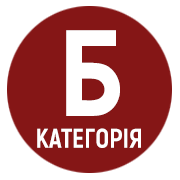TRAINING WORKSHOP TECHNOLOGIES IN THE PRACTICE OF TRAINING UNIVERSITY LECTURERS
DOI:
https://doi.org/10.24919/2413-2039.12/44.27Keywords:
training workshop; training workshop technologies; lecturer; higher education establishmentAbstract
The article discusses a topical problem of implementation of training workshop technologies for training university lecturers. Based on the analysis of the scientific literature, the category “training workshop” is defined. It has established that “training workshop” is a multifaceted concept: it is considered by scholars from different perspectives – legal, economic, social, pedagogical and philosophical. We consider training workshop as a pedagogical learning technology in the process of professional training of university lecturers, as it has a clear algorithm of use and guarantees the achievement of the planned result. Its purpose is to form the program results of students’ learning, organize various activities, shape personal attitude to solving situational problems in professional activities. The types of training workshop, the structure and teaching methods are analyzed. A method of conducting intensive training workshop “Professional competence – the basis of becoming a modern teacher of higher education” for students majoring in 011 “Educational, pedagogical sciences” has been developed, which aims to form general orientations in the field of competence approach and practical skills to successfully solve learning problems and education; to be socially active in society; systematically improve professional culture and pedagogical skills; be ready for a quality evaluation of their work. In the process of intensive training, a system of active learning methods was used, namely: cases, game methods, group discussions, brainstorming, video analysis, etc. A conclusion is drawn that the implementation of training workshop in practical classes helps the teacher to develop students’ professional abilities and skills to be creative, adapted and flexible with new information, capable of professional growth. Therefore, training workshop can be considered a new technology in the educational process that adapts the future teachers to their profession, as it aims at the step-wise implementation of various types of pedagogical innovations which changes the traditional pedagogical process.
References
Андрощук І. Тренінг як засіб підготовки майбутніх викладачів до педагогічної взаємодії. Вісник Черкаського університету: Серія: Педагогічні науки. 2016. № 9. С. 117–121.
Антонова О. Словник базових понять з курсу «Педагогіка». Житомир : Вид-во ЖДУ імені Івана Франка, 2014.
Звєрєва І. Соціальна педагогіка: мала енциклопедія. Київ : Центр учбової літератури, 2008.
Зубрицька Т., & Зубрицька Л. Тренінг як метод професійно орієнтованого навчання. Нові технології навчання. 2020. 94. С. 143–149.
Ковальчук Г., Бутенко Н., & Артюшина, М. Тренінгові технології навчання з економічних дисциплін. Київ : КНЕУ, 2006.
Лук’янчук Н. Класифікація видів тренінгів. Навчання і виховання обдарованої дитини: теорія та практика. 2013. № 1. С. 272–279.
П’ятакова Г., & Заячківська Н. Сучасні педагогічні технології та методика їх застосування у вищій школі. Львів : Вид. центр ЛНУ ім. І. Франка, 2003.
Петльована Л. Комунікативний тренінг як форма організації професійно-орієнтованого іншомовного навчання майбутніх фахівців у галузі економіки. Збірник наукових праць Хмельницького інституту соціальних технологій Унверситету «Україна». 2012. № 6. С. 118–121.
Побірченко Н. Психологічний словник. Київ : Науковий світ, 2007.
Сисоєва, С., & Бондарєва, Л. Педагогічні технології професійної освіти: навчальний тренінг. Київ : Україна, 2006.
Словник іншомовних слів Мельничука. URL: https://126.slovaronline.com (дата звернення: 27.03.2021).
Стандарт на групу професій «Викладачі закладів вищої освіти». URL: https://mon.gov.ua/ua/news/zatverdzheno-standart-na-grupu-profesij-vikladachi-zakladiv-vishoyi-osviti (дата звернення: 28.03.2021).
Cтинська В., & Прокопів Л. Інноваційні методики викладання дисциплін у ЗВО в процесі магістерської підготовки. Гірська школа українських Карпат. 22. С. 145–150.


